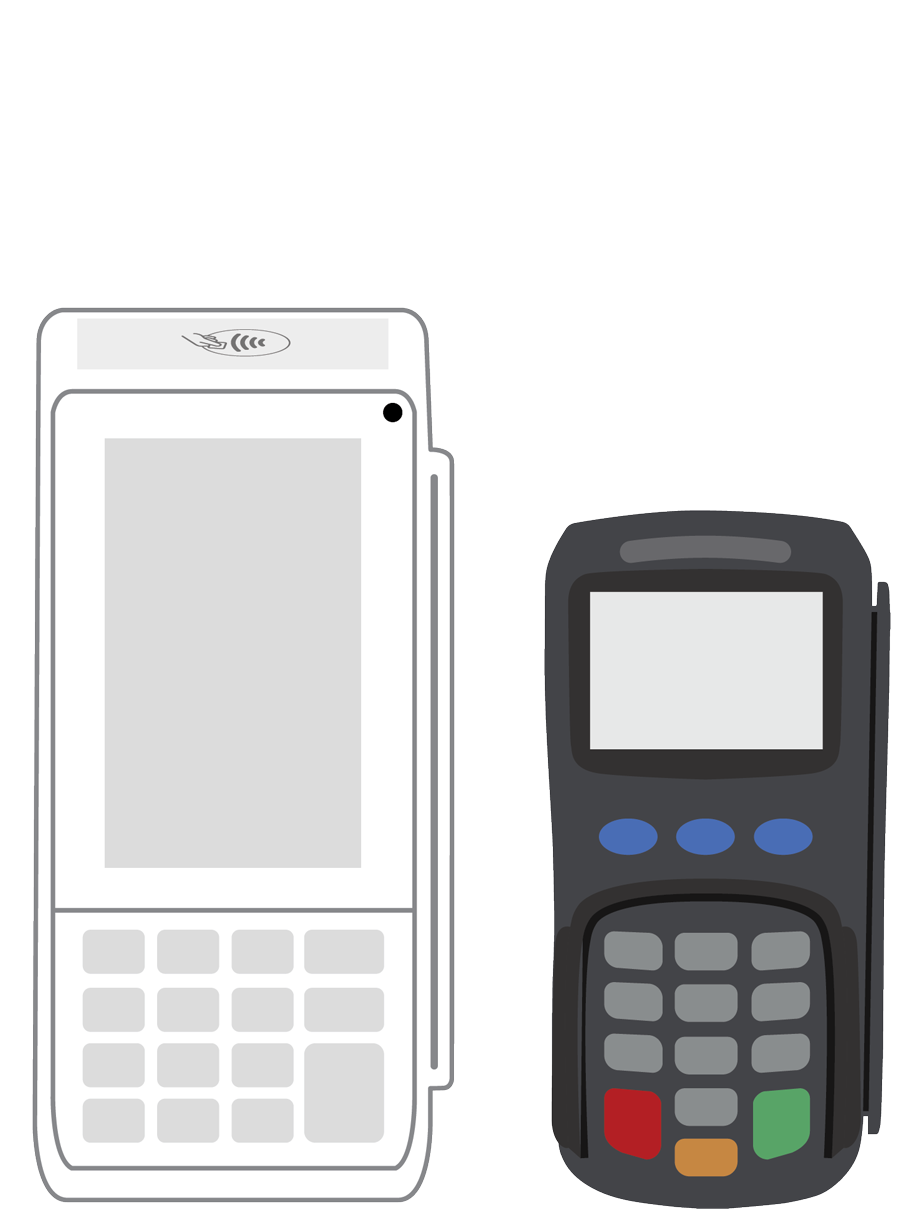How to avoid unnecessary payment processing fees in 2020.

Today’s business landscape is brimming with competitors. With your rivals potentially located around the corner, across the state, and even throughout the globe, you need to do all you can to offer your customers the product and payment choices they want. Failing to do so could result in shoppers quickly abandoning your store for another. Among the payment alternatives that buyers demand is the ability to use credit or debit cards. Give your business the upper hand by doing your research to find the most cost-effective, and comprehensive payment processing partner.
Use a merchant services provider instead of a bank.
Banks offer numerous products and services to their customers, serving consumers and commercial entities by offering loans, savings and checking accounts, mortgages, and much more. The truth is, acting as the payment processor for your business would amount to an infinitesimal fraction of your bank’s business, not to mention, expertise. That is why most banks choose to outsource these services to third parties, tacking on additional charges for the privilege. Compare that to merchant service providers who focus exclusively on the various services involved with accepting payments. As a result, you can expect dedicated customer service professionals, and knowledgeable individuals who can assist you whenever needs or concerns arise. Since you will inevitably need to pay someone to assist you with facilitating the acceptance of customers’ electronic payments, it might as well be a company specifically focused on this essential task.
Make sure you are PCI-compliant.
Any business that accepts electronic payments or stores, transmits. or otherwise manages customer data is required to heed the compliance standards known as PCI DSS. Also known as PCI compliance, these standards are set forth by the members of the payment card industry. It is your responsibility to ensure that your systems are PCI compliant, but it is equally important that any payment processing company to whom you entrust your data is just as scrupulous. Before agreeing to sign any contracts, make sure to request documentation that shows your vendors are as committed to data integrity (and security) as you are. Failing to do so can leave the door open to a data breach that you simply cannot afford to risk. At Payanywhere, our PCI Plus program helps qualified merchants shift the liability away from you should the worst happen and your data become compromised.
The payment processing solutions you use should enhance security by using up-to-date tokenization and encryption technologies that mask sensitive customer payment data from potential hackers. Encryption protects the customer’s information that you have received before the transaction is processed, while tokenization works by replacing customer data with an algorithmically generated number. Meanwhile, the actual information is safeguarded in a secure token vault, safe from cybercriminals.
Integrate your payments.
As a business owner, you are no doubt well aware of the importance of streamlined processes. Therefore, it should come as no surprise that the same principles will apply to your payment acceptance. Integration of your payments with other systems such as accounting and employee management software provides several benefits. For one thing, it allows for centralized data. When workflows are smooth, and your staff doesn’t need to wait for the information they need, your overall efficiency is increased. Furthermore, integration allows you to automate processes that may now be robbing you of countless hours of your valuable time, and heightening your frustration levels. As a side benefit, human error is drastically reduced once automation becomes the standard at your business. In addition, when processes are consolidated, all staff members have a more comprehensive idea of what is going on around them, making it easier to visualize the entire scope of the tasks at hand. As a result, it becomes easier to prioritize projects, and delegate resources to the places where they are most needed.
Get personalized service.
When you carefully select the payment processing company you will be working with, you can find one that fits hand-in-glove with your particular company’s needs and priorities. Remember, you’ll be dealing with this company very closely on a daily basis. Therefore, you should feel comfortable being in an ongoing relationship with them. If your current choice leaves you a little unsatisfied, now might be the time to begin searching for a different processor you feel more comfortable with.
Avoid tiered pricing.
Not all payment pricing structures are the same. Some companies require that you pay different fees according to the types of cards customers pay with, assigning different tiers for each. This type of system was once the standard in the industry; however, more and more processing companies are now offering Flat Rate Pricing as an alternative. This enables you to pay the same fees regardless of what cards are used. Furthermore, transparency is the order of the day since you can see exactly how much you are paying from month-to-month. In the end, this system results in more efficient record-keeping, as well as significant cost savings.
Look out for hidden fees and mandatory contracts.
The payment processing milieu is changing quickly, which is good news for you as a business owner. You have many more choices these days, and no longer need to get locked into restrictive, costly contracts packed with caveats and requirements that you cannot avoid. Before signing any agreements, stand up for your best interests. Say “no” to high fees and confusing restrictions, and don’t be afraid to ask questions if something is unclear. In many cases, you may even be able to negotiate at this stage, so don’t wait until after the contract is signed to bring up concerns.
Partner with a payment provider that offers $0 setup and $0 upgrade fees. Competition is fierce among payment processing companies, and businesses like yours win as a result. Because you have negotiating leverage, you are in a position to be able to settle on the provider that offers the most robust package of features. Don’t accept anything less than premier customer service, transparent fees, and technical support that can help you to stay on top of any equipment problems that might arise. Taking the time to insist on these features from your payment processor now can benefit your business (and your customers) for years to come.
Embed This Infographic
Copy and paste the code below to get this infographic onto your website or blog.
 3-in-1 Reader |  Terminal |  Keypad |  PINPad Pro |  Flex |  POS+ | |
|---|---|---|---|---|---|---|
Payment types | ||||||
EMV chip card payments (dip) | ||||||
Contactless payments (tap) | ||||||
Magstripe payments (swipe) | ||||||
PIN debit + EBT | ||||||
Device features | ||||||
Built-in barcode scanner | ||||||
Built-in receipt printer | ||||||
Customer-facing second screen | ||||||
External pinpad | ||||||
Wireless use | ||||||
Network | ||||||
Ethernet connectivity | With dock | |||||
Wifi connectivity | ||||||
4G connectivity | ||||||
Pricing | ||||||
Free Placement | ||||||